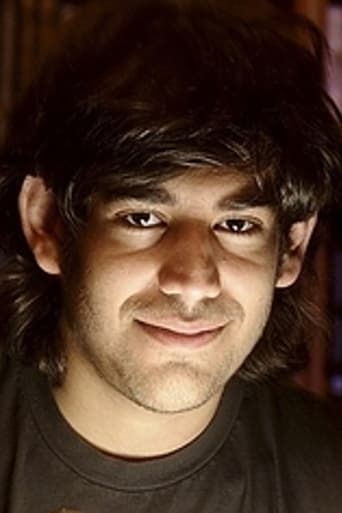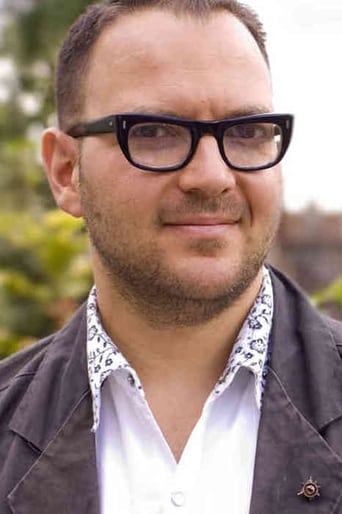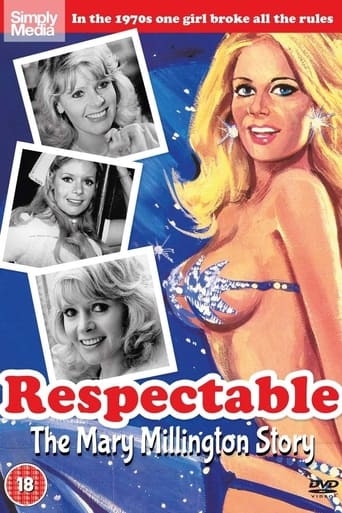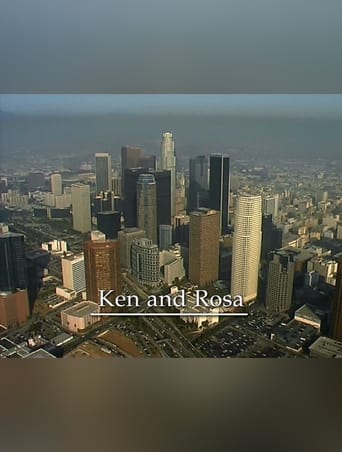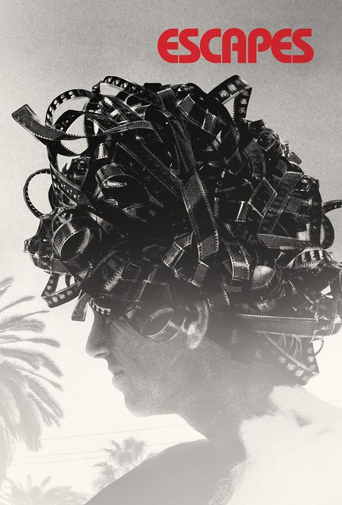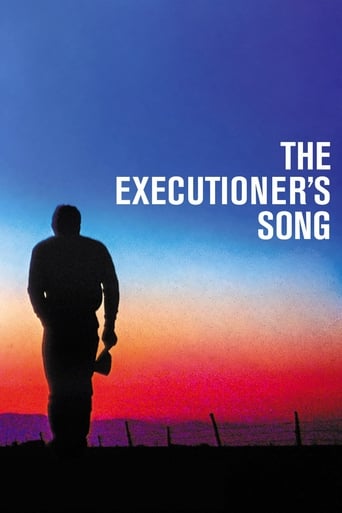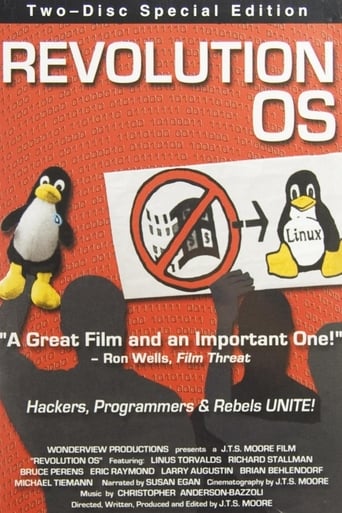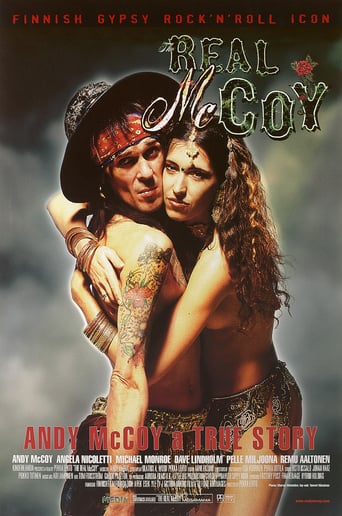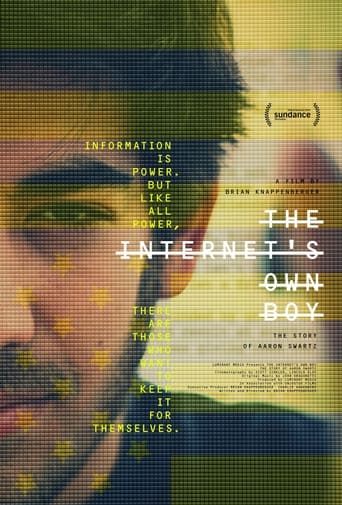
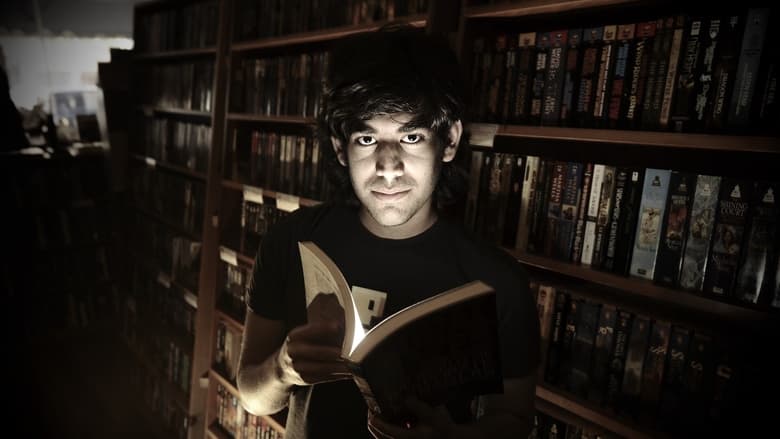
The Internet's Own Boy: The Story of Aaron Swartz (2014)
Programming prodigy and information activist Aaron Swartz achieved groundbreaking work in social justice and political organizing. His passion for open access ensnared him in a legal nightmare that ended with the taking of his own life at the age of 26.
Watch Trailer
Cast
Similar titles
Reviews
Thanks for the memories!
Please don't spend money on this.
I don't have all the words right now but this film is a work of art.
Exactly the movie you think it is, but not the movie you want it to be.
The Internet's Own Boy is a powerful indictment of big power, and a heart-rending portrait of a talented, driven individual eventually worn down by the system. Aaron Swartz was a precocious talent with a strong moral core. We all forget how young the Internet is, and how we are still forging the ground in this territory. That journey needs leaders with vision who can take the development in the right direction. Swartz was that leader. To ponder on his potential, on what has been lost by losing him at the tender age of 26, is almost unbearable. "It's not like he was curing cancer" is a clichéd, weary, cynical response at times these days. And as this film shows in its climax, it is a wildly inappropriate comment. This film is both a closely observed portrayal of one remarkable individual, and a mirror to our morally-skewed times. Unmissable.
Aaron Swartz was an internet hacker and activist who committed suicide under pressure from a U.S. government attempt to prosecute him for a crime (stealing data) where he meant no harm and sought to make no money. I certainly agree that the legal case against Swartz was absurdly overcooked; but the film throws up a number of interesting issues about theories of government in general, and the techno-utopian world-view that Schwarz subscribed to. Technological advance can make previous ways of doing things obsolete, and measures of control superfluous and/or unnecessary. They threaten vested interests (or, more probably, they threaten to replace an old elite whose interests are vested in the old technology with a new one unencumbered by attachment to the past). One can believe these changes are good in themselves; one can believe the death of the old control structures is an added bonus; one can believe that the changes are good precisely because they lead to the end of the old control structures. And this way of thinking (in the context of technologies for the storage and dissemination of data) leads to the idea that 'data wants to be free'; and that any attempt to restrict data availability is a form of human rights violation. This leads to some strange positions. For example, academic journals have existed, in some cases for hundreds of years, because publication has been intrinsically difficult. Now, it's easier, the traditional model may be obsolete, and of course, the publishers fight changes that threaten to end their cosy oligopoly. And yet, for an academic journal publisher to seek to defend their copyrighted material is not evil (unless one believes in the complete abolition of intellectual property, which is a different kind of argument). Being on the wrong side of history is ultimately a practical matter, not a moral one. And new models of publishing still come at a cost and still have to be paid for - data is not free (in that other sense of freedom) and in a world with differential ability to pay, that means it cannot be universally free in the other sense either.And as a scientist, supportive of the principle of open access, I find myself in agreement with most of Swartz's positions; and yet alienated by his friends and collaborators, who insist that the government should not have prosecuted Schwarz at all, basically because he was right and they were wrong. One really doesn't need a very advanced theory of power to see that this is a naive way of looking at the world, or an advanced theory of psychology to consider it an arrogant one. The world needs its Aaron Swartz's, and a wise and humane government would not seek to hand down excessive sentences on such people merely to assert its own right to make the rules. But the world also needs people to (mostly) obey the law, and while there may be many decisions of government that people might justly object to on grounds of conscience, Swartz's objections to copyright law lie mainly in the fact that it prevented him from doing cool and interesting things. I find myself in support of most of Swartz's specific views, yet sometimes I feel as scared of libertarians of left (like Swartz) and right as I am of the big government they oppose, whose optimism is invigorating yet in some senses selfish, with their apparent belief that government's worst crime is acting to prevent brilliant and privileged people from reaching the height of their potential. Whatever, it's a documentary that certainly makes you think, but one should screen the views of Scwartz's acolytes before swallowing them in their entirety.
I rate this movie 10 just because it is something that everyone needs to see. It is one of the most important subjects of our generation. Your and your kids freedom is at stake.If you think freedom of speech is important you should recommend this to everyone you know and don't know.If you think the U.S legal system is to hard on people threatening the establishment you should recommend this to everyone you know and don't know. If you think laws should bee public and accessible to everyone for free you should recommend this to everyone you know and don't know.
The story of Aaron Swartz, who killed himself at the age of 26, is sad but inevitable consequence of the world we inhabit.From his earliest days, he was a prodigy, not only developing the skills of reading and processing information at an early age, but acquiring a unique ability to write programs and offer innovative solutions to many problems presented in the early years of the Internet. With the help of testimonies from Swartz's family, plus colleagues and friends including the inventor of the web, Tim Berners-Lee, Brian Knappenberger's film traces the meteoric career of a genius who appeared to be able to offer solutions that no one else could. More significantly, Swartz had the ability to communicate with his interlocutors, not just in small-group situations but in public arenas as well. This is what rendered him such a powerful figure; although physically diminutive, he had a gift for speech-making that proved hypnotic in its effect.Matters came to a head, however, when Swartz hacked the JSTOR sits, an address used mostly for publishing scholarly journals across all disciplines, downloaded the information and made it available to all web users. This completely contravened JSTOR's principle, which was to make that information only available to subscribers, mostly in academic institutions. The principle might have been a noble one (why shouldn't all users have equal access to information, especially if it aids their research?), but the American government's response was predictably harsh, as they charged Swartz with a variety of crimes under an Act issued as long ago as the mid- Eighties.Knappenberger's film suggests with some justification that this reaction was ludicrously out of proportion to the nature of Swartz's so-called 'crimes.' He had neither challenged the Constitution nor caused harm to others; on the contrary he had simply worked in the interests of democratization. He was the victim of the same kind of paranoia that underpinned the anti-communist campaigns six decades ago, when legions of innocent people were rounded up and made to 'confess' their alleged involvement with a plot to subvert the American way of life, even if they had not done anything. The same applied to Swartz, who was offered the promise of lenient legal treatment in exchange for a 'confession.'The familiarity of Swartz's plight suggests that a climate of intolerance still exists in a country that consistently advertises its democratic credentials, especially when compared with other territories in the world. THE INTERNET'S OWN BOY suggests otherwise; if the government was truly democratic, it would either have understood Swartz's motives, or meted out the same harsh treatment to other criminals - such as those who precipitated the Wall Street crisis of 2008. But who said anything was truly equal in American society?THE INTERNET'S OWN BOT is a polemical piece that leaves viewers feeling both angry and frustrated - angry that a talented soul like Swartz should have had his life cut brutally short, and frustrated that the government should have pursued such heavy-handed treatment. If the film can inspire more activism to try and change official policies, it will have achieved much.
